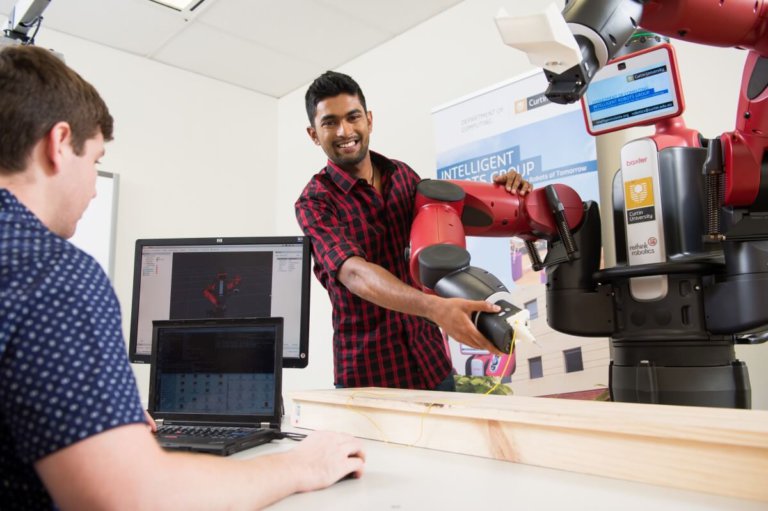
Engineering and the sciences are engines for growth and progression in today’s world. They are critical to the development of our global economy as they play a role in just about every aspect of life, using their creativity and knowledge for new developments and making tangible contributions to various industries.
Be it in finding new and better ways to extract oil and natural gas from reservoirs, building and maintaining a sustainable environment to address our ecological concerns, or the development of driverless cars and new appliances and infrastructures that are useful to society, there is a wealth of opportunities for prospective engineering students, regardless of their field of interest.
These roles will continue to grow in importance as the world embraces artificial intelligence, machine learning and other forms of new technology. High-calibre graduates can go on to enjoy lucrative jobs; the US Bureau of Labor Statistics projects nearly 140,000 new jobs in the field are expected to grow between 2016–2026. They add that in 2016, engineers had a median annual wage of US$91,010 – more than twice the median wage for most workers.
As future developments can’t be built on outdated knowledge, aspiring engineers or professionals looking to enhance their careers should pick a university that nurtures and develops their talent. This includes furnishing students with knowledge of fundamental concepts, practical problem-solving skills and industry experience, wherever relevant.

University of Auckland, Faculty of Engineering
For students looking to leap into the exciting world of engineering, here are four schools within the APAC to consider:
FACULTY OF SCIENCE AND ENGINEERING – CURTIN UNIVERSITY
Aspiring engineers can pursue Curtin’s Bachelor of Engineering (Honours) programme, which begins with the Engineering Foundation Year (EFY). Developed in partnership with industry, this award-winning programme and its purpose-built First Year Studio promotes the concept of learning by doing.
All undergraduate courses at Curtin are accredited by Engineers Australia and internationally recognised under the Washington Accord. Graduates can start their professional engineering career after just four years or progress to pursue a postgraduate degree with the Master of Professional Engineering, which features seven majors across chemical, civil, electrical, mechanical, petroleum, software and subsea engineering.
Students interested in mining or metallurgy can study at the iconic Western Australia School of Mines (WASM) in Kalgoorlie, located in the heart of the Goldfields’ mining industry. Here, both undergraduate and graduate students have opportunities to work in the industry and have access to some of Australia’s largest gold and nickel producers, WASM accounted for 40 percent of the nation’s total mining professionals who graduated in Mining Engineering, Geology, Metallurgy and Surveying.

Source: Curtin University, Faculty of Science and Engineering
Curtin’s School of Civil and Mechanical Engineering (CME) has achieved many accolades, including three undergraduate students who have been placed among the top 100 future Australian leaders. Undergraduate student projects have regularly won industry-awards. It has also been recognised for producing career-ready graduates who are already heavily aligned with industry and professional engineering bodies.
Learn more about Curtin University’s School of Engineering here.
FACULTY OF ENGINEERING – UNIVERSITY OF NEW SOUTH WALES (UNSW)
UNSW’s Faculty of Engineering has consistently ranked as the top engineering faculty in Australia and among the top 50 in the world. ThefFaculty boasts of internationally renowned teachers who are also leading researchers, offering a wide choice of undergraduate and postgraduate engineering programmes via its eight schools.
For example, the Bachelor of Engineering (Honours) programme aims to produce graduates with strong technical knowledge and the basic skills and attributes required to practise as professional engineers.

Source: UNSW School of Engineering
With sustainability being a pressing issue, UNSW’s Environmental Engineering (Honours) programme – under the School of Civil and Environmental Engineering – combines the broad knowledge of engineering and environmental processes in identifying environmental problems and developing solutions to these issues. It also coordinates activities of various specialist groups, including biologists, ecologists and geologists – within major projects.
Strong industry partnerships – from small start-ups to the world’s largest corporations – means students will benefit from learning industry practices, which can contribute to their career-readiness upon graduation. Prominent partnerships include Accenture, Arcadis, Atlassian, Commonwealth Bank and the Australian Government Department of Defense, providing both students and researchers with local and international opportunities.
UNSW also has many accolades under its belt. The institution was awarded ‘Most Employable University’ in the Top 100 Future Leaders Awards, with 16 UNSW students making the list.
SCHOOL OF ENGINEERING – HONG KONG UNIVERSITY OF SCIENCE AND TECHNOLOGY (HKUST)
HKUST’s School of Engineering may only be 28 years young, but it has already carved itself a reputation as one of the best engineering schools in the world. Rankings include 23rd in the Times Higher Education World University Rankings by Subject 2019 in Engineering and Technology, and 28th in Computer Science.

Source: HKUST Faculty of Engineering
As a student here, you’ll learn from world-class professors and can choose from an exciting array of engineering programmes at the undergraduate and graduate level. Bachelor programmes include Aerospace Engineering, Bioengineering, Chemical Engineering, Civil Engineering, Logistics Management and Engineering, and more. Students also have the option to choose from more than 100 partner institutions across the globe through the university’s exchange programmes.
HKUST prides itself on its strong industry and research partnerships at the local, regional and international level. The school’s innovative research has helped generate many technological advances, ranging from numerous patents, to establishing research centres to support local industry, to assisting the development of Hong Kong and the region. Faculty members have also continuously received top international honors for their work and had their research published in leading academic journals.
International students seeking admissions into their undergraduate programme may be eligible for a scholarship.
FACULTY OF ENGINEERING – UNIVERSITY OF AUCKLAND
The University of Auckland is ranked first globally in the inaugural Times Higher Education University Impact Rankings 2019, which measures how universities are performing against the United Nations’ Sustainable Development Goals (SDGs).

Source: University of Auckland, Faculty of Engineering
This Kiwi institution offers a variety of undergraduate and postgraduate engineering subjects from five departments. Undergraduate students are bound to find a discipline that suits their personal and professional interests from their nine programmes. This includes Biomedical Engineering, Chemical and Materials Engineering, Civil Engineering, Computer Systems Engineering, Electrical and Electronic Engineering, Engineering Science, Mechanical Engineering, Mechatronics Engineering and Software Engineering.
To boot, the university’s Bachelor of Engineering (Honours) specialisations are accredited by Engineering New Zealand, a signatory of the Washington Accord, making it a recognisable qualification in many countries.
There are also research opportunities for students based on their level of study, with some funded by scholarships or industry. For instance, the Summer Research Scholarships act as a platform for students to gain valuable research experience, work with leading researchers at the university, enhance their career opportunities and help students pursue their postgraduate study.
*Some of the institutions featured in this article are commercial partners of Study International
Liked this? Then you’ll love these…
Engineering a sustainable future
Why Asia is the top choice for your postgraduate engineering study







